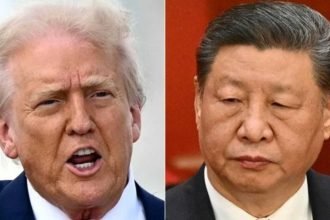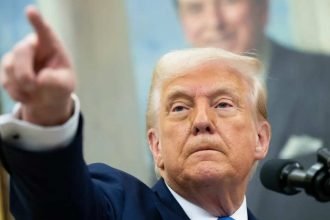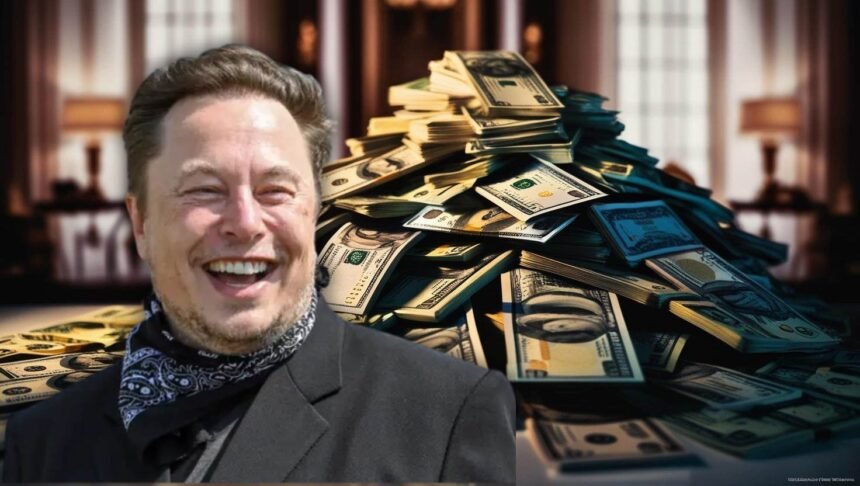In the United States, the gap between rich and poor has grown significantly over the last few decades, with the very wealthy amassing huge fortunes while most Americans fight to keep their finances in order.
The rise of valuable assets like stocks and tax policies that favor the rich a lot have made this trend stronger.
By looking at Elon Musk’s rise to possibly becoming the world’s first trillionaire by 2027, we can see how structural forces are continuing to make the richest 1% earn more and more.
The Rise of Elon Musk’s Wealth: A Case Study
The value of Tesla stock is a big reason why Elon Musk, CEO of Tesla and SpaceX, is on track to become the first trillionaire in the world. Tesla stock was worth less than $50 per share before the COVID-19 pandemic.
It’s worth about $230 per share now. This huge growth is due to both Tesla’s new ideas and investors’ faith in Musk’s vision and the possibilities for self-driving cars.
Some experts think that when self-driving cars come out, Tesla’s stock price could go over $300 per share.
It’s amazing how much money Musk has made, but it also shows a bigger truth: not everyone benefits equally from stock market gains.
More than half of all stocks in the U.S. are owned by the richest 1% of Americans, making them the wealthiest people in the country.
This means that people with middle- or low-incomes don’t have as much access to high-return investments, which means their wealth doesn’t grow as quickly.
Wealth Inequality by the Numbers
The stark truth of wealth inequality is shown by data from the Federal Reserve. At the start of the 1990s, the richest 1% of Americans owned about $4.76 trillion, which was 23% of the country’s income.
That number had grown to $46.1 trillion by 2020, which is 30% of all income. The bottom 50%, on the other hand, only saw a small rise from $730 billion to $3.78 trillion, or about 2.5% of the country’s income.
The wealthy make money from high-yield investments like stocks, but most Americans rely on wages, which are taxed more heavily and grow less quickly than capital gains.
This trend points to a major problem with the American economic system. An economic system that encourages taking risks and being entrepreneurial helps the top 1%.
Some people say that having so few rich people hurts society because it makes it harder for some people to get resources, influence politics, and move up in society.
The Role of Equity and Stock-Based Wealth
Musk’s story of success shows how stock-based wealth can change your life. Musk is richer than most paid workers because he owns shares in Tesla, SpaceX, and other companies.
He often gets stock options as part of his pay, which let him grow his stake in Tesla without having to buy shares at face value.
In the last five years, Tesla’s stock has gone up by more than 1,300%, which has caused Musk’s net worth to skyrocket. As long as this growth rate keeps up, Musk might be a trillionaire by 2027.
This way of looking at wealth isn’t unique to Musk. Jeff Bezos and Mark Zuckerberg are two other billionaires who got rich by owning stocks instead of getting paid in cash.
By having a big share of ownership in their companies, they gain from stock prices going up, which speeds up the process of getting rich.
People who can afford to invest in stocks are usually the only ones whose wealth grows through stock ownership. This means that most middle- and low-income Americans are left behind.
The Impact of Asset Ownership on Wealth Distribution
In the U.S., asset ownership has a big impact on how wealth is distributed. A big chunk of the richest Americans’ money is invested in high-value assets, especially stocks, which tend to go up in value over time.
Middle-income Americans, on the other hand, depend more on real estate, especially owning a home, as their main asset.
Rich middle-class families see their wealth grow as their home prices go up, but these gains are often slower and less significant than the returns seen in the stock market.
Also, rising home prices make it harder for new buyers to become homeowners, which makes it even harder for young and low-income Americans to build wealth.
The effects of rising home prices are complicated. For one thing, people who already own homes gain from rising property values, which makes them richer.
However, this trend makes housing less affordable, which makes it harder for people who depend on owning a home as their main way to build wealth.
As home prices rise, people who want to buy a house have more money problems, while rich people keep getting big gains on their stock investments.
Tax Strategies that Favor the Wealthy
The tax code is one of the main reasons why the richest Americans collect wealth so quickly.
Salaried workers have to pay income tax on their salary, but very wealthy people like Musk can use different tax strategies to lower their taxable income.
One example is that Musk often borrows against his assets to get cash instead of selling them. This way, he can pay for his lifestyle without having to pay capital gains taxes, which would happen if he sold his stock.
Musk’s pay, which is mostly stock-based, also keeps the amount of income that has to be taxed to a minimum.
Musk can become very rich through stock options without having to take advantage of the tax benefits right away.
These tactics help the very rich legally avoid paying big taxes, which makes the wealth gap between them and everyone else even bigger.
The Role of Innovation and Risk in Wealth Accumulation
Innovation and business ownership are at the heart of the American economy. There are people who support this system who say that high rewards for taking risks lead to technical progress that is good for everyone.
For example, the success of companies like Tesla and SpaceX has sped up the progress in electric cars and space travel, which could be good for the business and the environment in the long run.
But the huge benefits for entrepreneurs like Musk also show that there are problems with the way wealth is distributed in society as a whole.
Rich people’s investments grow at an exponential rate, but Americans with middle- or low-incomes often have trouble starting their own businesses because they can’t get enough cash or resources.
This unfairness in opportunities keeps a loop going in which a small group of famous people keep most of the money.
The Future of Wealth Inequality in America
As the gap between rich and poor keeps growing, worries about what happens when wealth gets concentrated get stronger.
Critics say that too much wealth concentration gives the richest people too much political power and influence, since they can make policies that protect and grow their wealth.
This effect can be seen in areas like housing, schooling, and health care, where policies may favor the needs of the wealthy over those of the general public.
There’s also the social side of unequal wealth. The middle and lower classes are becoming more disappointed and angry as the rich get richer. This is because the costs of living are going up and they don’t have the same chances to get rich.
As a result, more Americans feel powerless because the economy seems to be fixed in favor of the rich, which could lead to social unrest and political division.





